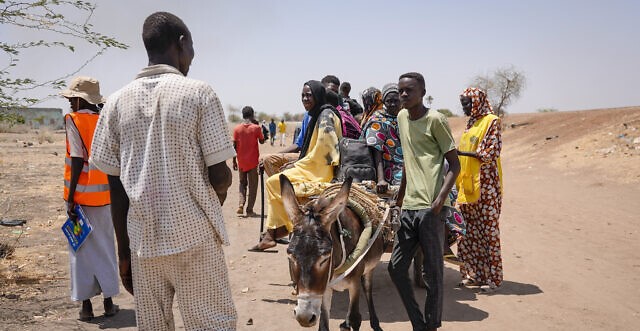Relief agency DanChurchAid said nearly 2,000 people were crossing into South Sudan daily in a desperate attempt to flee the escalating conflict in Sudan.
In a press release on Thursday, the humanitarian organization. explained that the ongoing violence had displaced more than seven million people within Sudan and forced over two million others to seek refuge in neighboring countries, with more than 744,000 entering South Sudan since the outbreak of the conflict in April 2023.
The war is a power struggle pitting the Sudanese Armed Forces (SAF) against the powerful paramilitary group known as the Rapid Support Forces RSF.
Many of those crossing the border into South Sudan, disclosed the DanChurchAid release, escaped violence and conflict in that very country only a few years back.
“While people flee active conflict in Sudan they arrive in a dire situation in South Sudan, where food is scarce and the risk of facing violence, especially for women and children, is also very high.
“The combined effects of national displacement, conflict, economic crisis, and climate change have left over 9.4 million people in South Sudan in need of humanitarian aid. An estimated 8-9 million people are expected to experience acute food insecurity in 2024, with 1.6 million children under five facing acute malnutrition and urgently needing nutritional support,” reads the press release.
The statement further explained that the European Union was offering vital assistance through the funding of the response launched by DanChurchAid and its partners, Christian Aid, Nile Hope, UNIDOR and Africa Development Aid (ADA).
“EU funding for local South Sudanese organisations is a lifeline for those displaced by the Sudanese conflict. It empowers local responders who understand the specific needs and builds lasting solutions for a brighter future” says Rahab Wanja, Project Lead and Food Security and Livelihood Specialist from Nile Hope, implementing partner of DanChurchAid in Pibor, Ulang and Fashoda.
The combined efforts enabled the needy to purchase food, medicine, and clothing, while also focusing on reducing and responding to high levels of gender-based violence affecting women and children by offering psychosocial support, dignity and hygiene kits, and case management.
The European Union and its member states are among the world’s leading donors of humanitarian aid. Their relief assistance is considered an expression of European solidarity with people in need all around the world.




